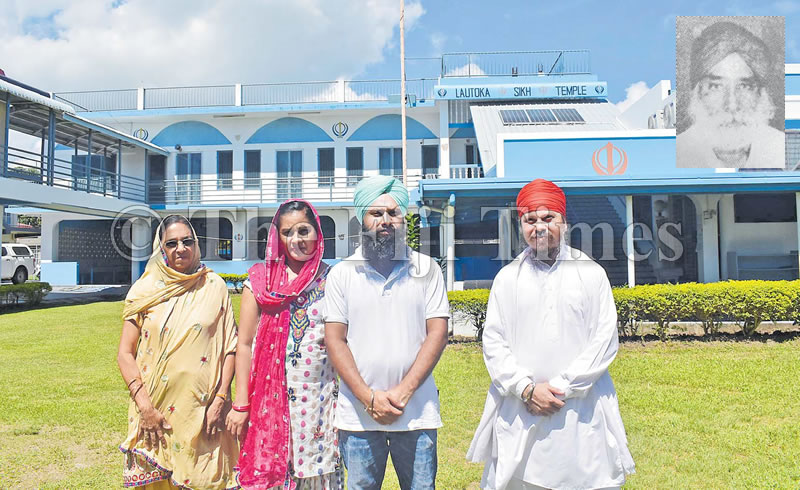The arrival of Fijians of Indian descent into Fiji many decades ago are stories worth sharing. Most of these journeys are well-documented and scripted in the many books that have been published by their descendants who have contributed so much to the growth of Fiji.
One certain group which make up these special historical moments are the Sikhs, originally of Punjab, India.
Two weeks ago, the Sikhs celebrated the Baisakhi festival — a new year for all devotees of the Sikh community and a celebration of happiness.
The Sikh Association of Fiji magazine noted that in the auspicious occasion of Baisakhi – Sikh followers should take a moment to think of their parents, grandparents and great-grandparents who after leaving India in the 1930s continued to preach Sikhism in the Fiji Islands.

A publication well-documented among the history books of the Sikhs at the Lautoka Gurudwara entailed the arrival of Sikhs into Fiji towards the end of the Indentured Labour system with hopes of securing better life and prosperity.
One of those interesting historical documents was penned by Sardar Iqbal Singh Biln in the Sikh Association of Fiji magazine, a former vice president of the Tagitagi Gurudwara and grandson of the late Sardar Gulzara Singh Biln, one of the first Sikh settlers in Fiji.
The document noted that Sardar Gulzara Singh Biln arrived in Fiji in 1928 as a 16-year-old among many other prominent Sikhs who were very conscious about their culture and religion.
He was encouraged to travel to Fiji by his cousin, Sardar Tara Singh Biln who was the father of Bhai Mohan Singh Biln – the long serving Granthi at Tagitagi, Tavua and Lautoka Gurudwara (temple). Gulzara Singh left behind his parents and five brothers when he came to settle in Fiji.
After landing at Suva Point many months after leaving the Punjab shores, Sardar Gulzara Singh Biln and many other Sikhs settled in Malele, Tavua as cultivators.
At his home in Malele, he and other Sikhs started a Gurdwara which was later moved to Tagitagi, a central area to accommodate more and more Sikhs who started arriving and settled in the Ba and surrounding Tavua farming communities.
The late Mr Singh Biln married in 1936 and raised a family of eight at Malele where he had first settled and called home.
In his lifetime, he always had the time to serve the community where he was the founding member and president of the then Balata Indian School, now Balata Primary School, and spent many years of his life as a committee member and president of Tagitagi Gurudwara.
He died in 1986 in Tavua and his sons, daughters and most of his grandchildren and their families moved abroad in search of better life and now settle in Canada and the USA.
His youngest son Sardar Harjindar Singh Biln, who was the president of the Lautoka Gurudwara in 1986-1987, now lives in Toronto, Canada. The Lautoka Gurudwara was established in 1933 by Sikhs living in Lautoka, Nadi and Sigatoka.
It was, however, completely desecrated by arsonist in 1987 and a new building was constructed in 1990 which currently house the Gurudwara in the Sugar City.
Despite calling Fiji their homeland, most Sikhs in Fiji have not diverted from their true religious calling and beliefs.
They believe that as Sikhs, they must always set example to the life of others, therefore a Sikh should become a better farmer, a better businessman and a better public servant. He is also not to shun material gain or the comforts of life.

priest Kulwinder Singh prays at the Lautoka Gurudwara. Pictures: BALJEET SINGH
In Sikhism, the religious magazine noted that ethics and religion go together and the inculcation of moral qualities and the practice of virtue in everyday life is a vital step towards spiritual development.
The Fijian Sikh community has also contributed a lot to the growth of the Fijian economy.
They have also built schools and institutions which also ensured the best education was
provided to people of different races living in Fiji.
Their religious celebration has also been observed and followed by many other people of different cultures.
Most Sikhs in Fiji live in different parts of Fiji and are heavily involved in dairy farming, pineapple and sugarcane farming while some are also local exporters.





